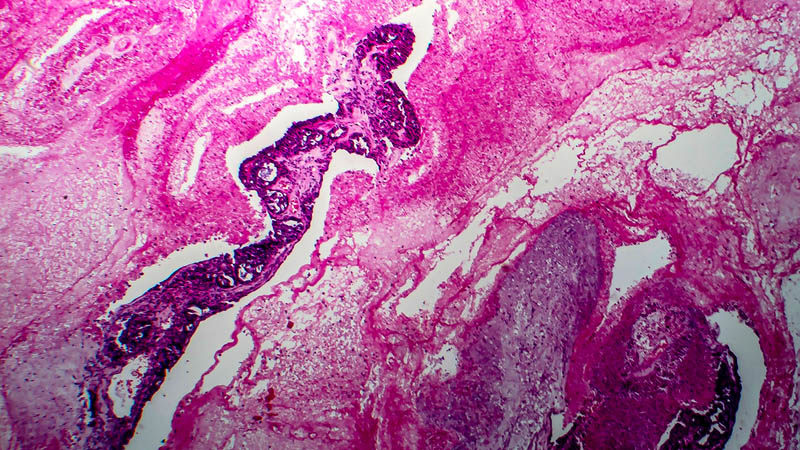The influence of nadroparine activated fibrinolysis on renal function in patients with FIGO IIB-IIIB cervical cancer treated with radiochemotherapy
Paweł Derlatka, Ewa Stachurska, Małgorzata Benke, Mariusz Bidziński
 Affiliacja i adres do korespondencji
Affiliacja i adres do korespondencji
Radio- and chemotherapy increases the probability of both arterial and venous thromboembolic complications. Increased coagulation activity causes thrombosis and embolisms in the vessels of numerous organs, thus affecting their function.
Aims: The main aims of the research are as follows: 1) Evaluation of the influence of haemostatic disorders on renal function in patients with FIGO stage IIB-IIIB cervical cancer treated with radiochemotherapy. 2) Developing methods of improving renal function in patients with haemostatic and fibrinolytic disorders undergoing radiochemotherapy treatment for FIGO stage IIB-IIIB cervical cancer. Methods: The study was randomized. Treatment design assumes the administration of a total radiation dose of 46-65 Gy (box technique) in 2 Gy fractions and, additionally, cisplatin 40 mg/m2 every 7 days in patients with normal plasma creatinine level. Renal function will be assessed with the aid of dynamic scintigraphy with glomerular filtration rate (GFR) evaluation. Analysis of serum haemostatic system covered D-dimers, PAP, PAI-1, tPA, F1+2, TAT. The patients will be divided into two groups: the study group – i.e. patients with affected glomerular filtration rate and the control group – patients with normal renal dynamic scintigraphy results. Half of study group patients was, throughout the entire treatment, receive nadroparine prophylaxis in a standard dose – 2850 units aXa/0.3 ml every 24 hours during and 6 weeks after the treatment (randomization list). Results: There are statistically significant decreasing of GFR in control (median -9.7%) and study group without nadroparine (median -9.9%). In study group with nadroparine the increasing of GFR (median 22.3%) was noted (p=0.0001). Serum haemostatic system analysis showed activation of fibrinolysis in patients treated with nadroparine and increation of fibrinolysis inhibition in study group without nadroparine and in control group. Conclusion: 1) One of the reasons of subclinical renal insufficiency in patients with advanced cervical cancer may be the inhibition of fibrinolysis with glomerular thrombosis. 2) This insufficiency increasing after the end of radiochemotherapy in patients as well with normal GFR as with primary decreasing GFR. Simultaneously, there are increase pathological changes in serum haemostatic system. 3) The application of nadroparine caused fibrinolysis activation, and increasing of glomerular filtration.









